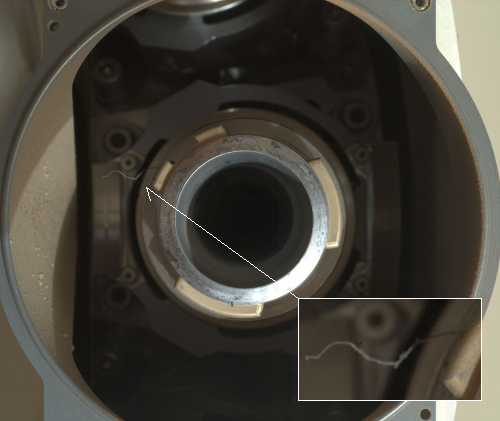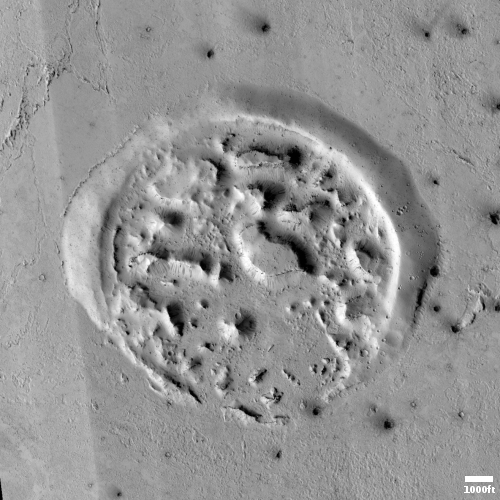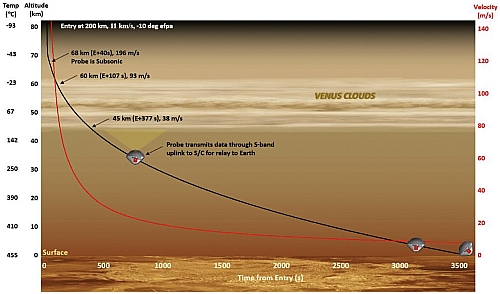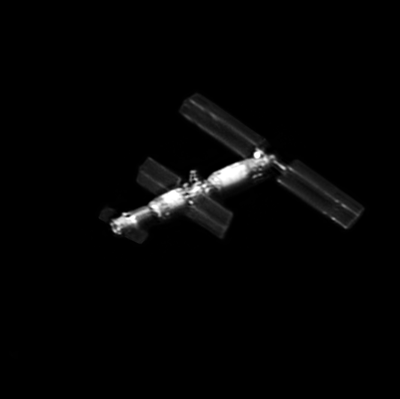Author: Robert Zimmerman
SpaceX and China complete launches
Two launches have just occurred in the 2022 launch race. First, SpaceX today successfully launched another 53 Starlink satellites, using its Falcon 9 rocket.
The first stage successfully landed on its drone ship in the Atlantic, completing its ninth flight.
China in turn used its Long March 2D rocket to launch three military reconnaissance satellites, at what was the early morning hours of August 20, 2022, China time. The launch path took the rocket over China’s interior as well as Taiwan, with the first stage crashing somewhere in China.
The leaders in the 2022 launch race:
37 SpaceX
31 China
11 Russia
6 Rocket Lab
5 ULA
American private enterprise still leads China 52 to 31 in the national rankings, and the entire world 52 to 49. The 52 launches so far this year is now the fifth best total for the U.S. since the launch of Sputnik in 1957.
Two launches have just occurred in the 2022 launch race. First, SpaceX today successfully launched another 53 Starlink satellites, using its Falcon 9 rocket.
The first stage successfully landed on its drone ship in the Atlantic, completing its ninth flight.
China in turn used its Long March 2D rocket to launch three military reconnaissance satellites, at what was the early morning hours of August 20, 2022, China time. The launch path took the rocket over China’s interior as well as Taiwan, with the first stage crashing somewhere in China.
The leaders in the 2022 launch race:
37 SpaceX
31 China
11 Russia
6 Rocket Lab
5 ULA
American private enterprise still leads China 52 to 31 in the national rankings, and the entire world 52 to 49. The 52 launches so far this year is now the fifth best total for the U.S. since the launch of Sputnik in 1957.
Today’s blacklisted American: Conservatives blackballed with enthusiasm from Harvard

Blacklists are back and academia loves ’em! According to a survey put together by the campus newspaper The Harvard Crimson, only 1.5% of Harvard’s faculty identified themselves as conservatives.
You can read the survey here. From the link above:
A total of 333 respondents completed the entire survey, while another 143 partially completed it. The paper distributed it to the Faculty of Arts and Sciences and School of Engineering and Applies Sciences professors.
According to the survey, only 16 percent of Harvard faculty characterized their views as moderate and 1.5 percent identified as conservative.
However, it isn’t this decidedly one-sided nature of Harvard’s faculty that is the real problem, but the enthusiasm this leftist community has for this blacklisting. From the survey itself:
» Read more

Blacklists are back and academia loves ’em! According to a survey put together by the campus newspaper The Harvard Crimson, only 1.5% of Harvard’s faculty identified themselves as conservatives.
You can read the survey here. From the link above:
A total of 333 respondents completed the entire survey, while another 143 partially completed it. The paper distributed it to the Faculty of Arts and Sciences and School of Engineering and Applies Sciences professors.
According to the survey, only 16 percent of Harvard faculty characterized their views as moderate and 1.5 percent identified as conservative.
However, it isn’t this decidedly one-sided nature of Harvard’s faculty that is the real problem, but the enthusiasm this leftist community has for this blacklisting. From the survey itself:
» Read more
Strings in Perseverance’s drill?
Since August 5th, the Perseverance science team has been trying to figure out the origin as well as the consequences of “two string-like pieces” of foreign object debris (FOD as used by today’s acronym-happy scientists) that they have spotted next to one of the rover’s coring drill bits.
The photo to the right, cropped and reduced to post here, looks directly down at that core drill bit and shows one of those strings both to the side of the bit as well in full resolution in the inset. From today’s update:
Since first identified Aug. 5 in imagery of the rover’s sample collection system after a 12th rock core sample was taken, the FOD has been the focus of several methodical diagnostic activities in an attempt to better understand the nature of the debris.
We’ve commanded the rover to move, rotate, or vibrate components we think could harbor FOD. And we’ve obtained multiple sets of images of the components from different angles and in different lighting conditions from rover cameras: Mastcam-Z, Navcam, Hazcam, Supercam, and even the WATSON (Wide Angle Topographic Sensor for Operations and eNgineering) camera located on the rover’s turret. Finally, a thorough review of recent coring and bit-exchange activities confirm that they all executed nominally with no indication of interference from the FOD.
Analysis of the latest round of imaging, downlinked earlier today, indicates that while the two small pieces remain visible in the upper part of the drill chuck, no new FOD has been observed. In addition, imagery taken of the ground beneath the robotic arm and turret, as well as the rover deck, also showed no new FOD.
Because these strings do not appear to interfere in any way with the drill’s operation, the science team has decided neither is a cause for concern, and will therefore command the rover to leave this just-completed drill site and move on to the southwest to a location at the base of the delta the rover visited about three months ago.
The strings themselves are likely pieces from the equipment released during the rover’s landing, and might even have come from the tangled string the rover imaged on the nearby ground in July, and that was gone just four days later. The wind had blown it away, and may have even at that time blown pieces into the drill.
Since August 5th, the Perseverance science team has been trying to figure out the origin as well as the consequences of “two string-like pieces” of foreign object debris (FOD as used by today’s acronym-happy scientists) that they have spotted next to one of the rover’s coring drill bits.
The photo to the right, cropped and reduced to post here, looks directly down at that core drill bit and shows one of those strings both to the side of the bit as well in full resolution in the inset. From today’s update:
Since first identified Aug. 5 in imagery of the rover’s sample collection system after a 12th rock core sample was taken, the FOD has been the focus of several methodical diagnostic activities in an attempt to better understand the nature of the debris.
We’ve commanded the rover to move, rotate, or vibrate components we think could harbor FOD. And we’ve obtained multiple sets of images of the components from different angles and in different lighting conditions from rover cameras: Mastcam-Z, Navcam, Hazcam, Supercam, and even the WATSON (Wide Angle Topographic Sensor for Operations and eNgineering) camera located on the rover’s turret. Finally, a thorough review of recent coring and bit-exchange activities confirm that they all executed nominally with no indication of interference from the FOD.
Analysis of the latest round of imaging, downlinked earlier today, indicates that while the two small pieces remain visible in the upper part of the drill chuck, no new FOD has been observed. In addition, imagery taken of the ground beneath the robotic arm and turret, as well as the rover deck, also showed no new FOD.
Because these strings do not appear to interfere in any way with the drill’s operation, the science team has decided neither is a cause for concern, and will therefore command the rover to leave this just-completed drill site and move on to the southwest to a location at the base of the delta the rover visited about three months ago.
The strings themselves are likely pieces from the equipment released during the rover’s landing, and might even have come from the tangled string the rover imaged on the nearby ground in July, and that was gone just four days later. The wind had blown it away, and may have even at that time blown pieces into the drill.
An armored manta-ray-shaped small submarine for commercial and military applications
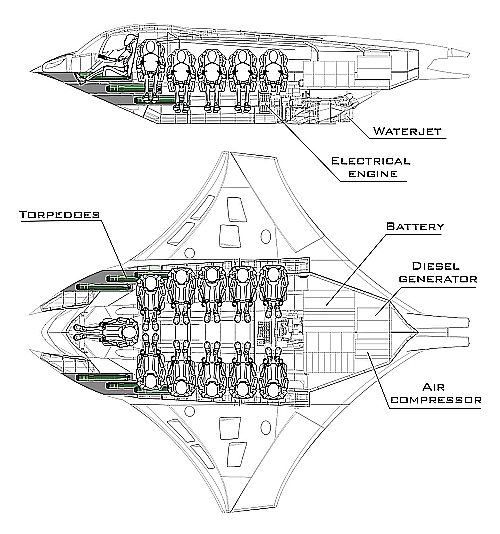
A private company, Highland Systems, that was founded in the Ukraine but now is based both in the UK and the UAE, appears to be building an armored manta-ray-shaped small submarine for both commercial and military applications.
It’s designed for a mix of commercial, military and allegedly rescue operations – and from the looks of the stark, largely windowless interior, it certainly doesn’t seem interested in tourism or luxury. A little over 9 m (29.6 ft) long, Kronos will weigh somewhere around 10,000 kg (22,000 lb). Its fat wings will fold upward, allowing you to tow it on a trailer if you wish to cause a series of gawking-related accidents among oncoming traffic.
Plonk it in the water, and it’ll seat 10 passengers plus a driver. The hybrid powertrain marries a diesel generator to a 1,200-horsepower, 2,400-Nm (1,770-lb-ft) electric motor driving a waterjet propulsion system. It can dive to a working depth of 100 m (328 ft), or a max critical depth of 250 m (820 ft), which is pretty decent in the scheme of things. The air supply is good for around 36 hours.
The performance figures are nuts. Highland says it’ll do 80 km/h (50 mph) on top of the water, or 50 km/h (31 mph) underwater; that’s seriously fast through water, just ask Michael Phelps. It carries enough battery on board for a 36-hour all-electric mission, or you can fire up the diesel generator to add a further 18, taking total range up to a very impressive 54 hours of autonomy. There’s adaptive lighting, an automated life support system and air-con – and the schematics show spots for torpedoes as well.
Nor is this entirely a fantasy of the company. It has already built the submarine’s main shell.
As the quote notes, though the company claims this submarine will have civilian uses, the submarine being built now seems entirely military in nature, especially because there is no information at all about the customer paying for its construction. Also, note the torpedoes shown in the schematic above, as well as the packed passengers. Since the company has its roots in the Ukraine, I can just imagine it being used by the Ukraine to transport soldiers to the Crimea on an undercover sabotage mission to destroy Russian assets.

A private company, Highland Systems, that was founded in the Ukraine but now is based both in the UK and the UAE, appears to be building an armored manta-ray-shaped small submarine for both commercial and military applications.
It’s designed for a mix of commercial, military and allegedly rescue operations – and from the looks of the stark, largely windowless interior, it certainly doesn’t seem interested in tourism or luxury. A little over 9 m (29.6 ft) long, Kronos will weigh somewhere around 10,000 kg (22,000 lb). Its fat wings will fold upward, allowing you to tow it on a trailer if you wish to cause a series of gawking-related accidents among oncoming traffic.
Plonk it in the water, and it’ll seat 10 passengers plus a driver. The hybrid powertrain marries a diesel generator to a 1,200-horsepower, 2,400-Nm (1,770-lb-ft) electric motor driving a waterjet propulsion system. It can dive to a working depth of 100 m (328 ft), or a max critical depth of 250 m (820 ft), which is pretty decent in the scheme of things. The air supply is good for around 36 hours.
The performance figures are nuts. Highland says it’ll do 80 km/h (50 mph) on top of the water, or 50 km/h (31 mph) underwater; that’s seriously fast through water, just ask Michael Phelps. It carries enough battery on board for a 36-hour all-electric mission, or you can fire up the diesel generator to add a further 18, taking total range up to a very impressive 54 hours of autonomy. There’s adaptive lighting, an automated life support system and air-con – and the schematics show spots for torpedoes as well.
Nor is this entirely a fantasy of the company. It has already built the submarine’s main shell.
As the quote notes, though the company claims this submarine will have civilian uses, the submarine being built now seems entirely military in nature, especially because there is no information at all about the customer paying for its construction. Also, note the torpedoes shown in the schematic above, as well as the packed passengers. Since the company has its roots in the Ukraine, I can just imagine it being used by the Ukraine to transport soldiers to the Crimea on an undercover sabotage mission to destroy Russian assets.
Dragon cargo freighter undocks from ISS
Capitalism in space: The Dragon cargo freighter that arrived at ISS in July 16th has now undocked from the station, with a planned splashdown scheduled for tomorrow.
To show how routine these commercial missions have become, it appears that neither NASA nor SpaceX are bothering to live stream the splashdown. NASA will simply provide updates on the web.
Capitalism in space: The Dragon cargo freighter that arrived at ISS in July 16th has now undocked from the station, with a planned splashdown scheduled for tomorrow.
To show how routine these commercial missions have become, it appears that neither NASA nor SpaceX are bothering to live stream the splashdown. NASA will simply provide updates on the web.
Indian company delivers Gaganyaan fairing and high altitude launch abort motor to ISRO
Capitalism in space: The Indian private company, Hindustan Aeronautics Limited, yesterday delivered to India’s space agency ISRO the fairing and high altitude launch abort motor that will be used in Gaganyaan, that nation’s first manned spaceflight.
Though the article at the link does not say so, the fairings and abort motor will likely be used in one of two unmanned launch abort test flights ISRO intends to do before the actual manned mission, now set for sometime in ’24.
Hindustan Aeronautics is also a space company in India that will require watching. It not only built these major components for Gaganyaan, it also has built major components for India’s PSLV and GSLV rockets. It would not surprise me if the company eventually decides to build its own rocket, assuming the India government loosens the stranglehold it presently has over space and lets private companies compete against its government space operations. It was a similar stranglehold by NASA from the 1970s to the 2000s that squelched competition and innovation from the American private aerospace industry. When that ended, the renaissance in commercial space finally could begin.
UPDATE: It appears I was in error assuming Hindustan Aeronauts was a private company, as it is owned by the Indian government. I have edited the post above to reflect this. It appears the stranglehold the government has over India’s aerospace industry is no closer to loosening.
Capitalism in space: The Indian private company, Hindustan Aeronautics Limited, yesterday delivered to India’s space agency ISRO the fairing and high altitude launch abort motor that will be used in Gaganyaan, that nation’s first manned spaceflight.
Though the article at the link does not say so, the fairings and abort motor will likely be used in one of two unmanned launch abort test flights ISRO intends to do before the actual manned mission, now set for sometime in ’24.
Hindustan Aeronautics is also a space company in India that will require watching. It not only built these major components for Gaganyaan, it also has built major components for India’s PSLV and GSLV rockets. It would not surprise me if the company eventually decides to build its own rocket, assuming the India government loosens the stranglehold it presently has over space and lets private companies compete against its government space operations. It was a similar stranglehold by NASA from the 1970s to the 2000s that squelched competition and innovation from the American private aerospace industry. When that ended, the renaissance in commercial space finally could begin.
UPDATE: It appears I was in error assuming Hindustan Aeronauts was a private company, as it is owned by the Indian government. I have edited the post above to reflect this. It appears the stranglehold the government has over India’s aerospace industry is no closer to loosening.
Firefly completes a dress rehearsal countdown of Alpha rocket; schedules launch
Capitalism in space: Having successfully completed both a full dress rehearsal countdown and static fire test of its fully stacked Alpha rocket, Firefly Aerospace has now scheduled the rocket’s launch for September 11, 2022.
These details come from a tweet by the company, so details are very limited. Nonetheless, this will be the company’s second attempt to complete an orbital launch. The first attempt, in September 2021, failed when one of its first stage engines shut down prematurely.
The company had hoped to attempt this second launch ten months ago, but was forced to delay it when the federal government demanded its chief investor, Ukrainian billionaire Max Polykov, first sell off his share in the company.
Hat tip to BtB’s stringer Jay.
Capitalism in space: Having successfully completed both a full dress rehearsal countdown and static fire test of its fully stacked Alpha rocket, Firefly Aerospace has now scheduled the rocket’s launch for September 11, 2022.
These details come from a tweet by the company, so details are very limited. Nonetheless, this will be the company’s second attempt to complete an orbital launch. The first attempt, in September 2021, failed when one of its first stage engines shut down prematurely.
The company had hoped to attempt this second launch ten months ago, but was forced to delay it when the federal government demanded its chief investor, Ukrainian billionaire Max Polykov, first sell off his share in the company.
Hat tip to BtB’s stringer Jay.
Raytheon & Northrop Grumman successfully complete the second flight of a hypersonic missile prototype
Raytheon and Northrop Grumman, working in partnership, have successfully flown a hypersonic missile prototype for the second time in eleven months.
For the latest test, the HAWC prototype was carried under the wing of an aircraft and flown to high altitude, where it was released. A solid rocket booster then accelerated the vehicle to supersonic speed and a scramjet ignited. An engine without moving parts, a scramjet uses its forward motion to compress the incoming air into a shockwave that burns with fuel, producing enough thrust to propel the missile to over five times the speed of sound.
The latest prototype had only minor modifications from the previous flight and met all of its objectives. The data recovered by telemetry will be used to improve the digital models using artificial intelligence, machine learning, and big data, which will increase the efficiency and performance as the weapon concept comes closer to practical deployment.
As this is a military project, not many details about the prototype were released, such as its size, speed, design.etc. One shouldn’t even trust the illustrations of the missile, provided by Northrop Grumman. Each shows the missile with a rounded lifting body shape on its bottom side, likely to protect and guide it on its re-entry, but there is no guarantee the illustrations’ shape matches that of the real missile.
Raytheon and Northrop Grumman, working in partnership, have successfully flown a hypersonic missile prototype for the second time in eleven months.
For the latest test, the HAWC prototype was carried under the wing of an aircraft and flown to high altitude, where it was released. A solid rocket booster then accelerated the vehicle to supersonic speed and a scramjet ignited. An engine without moving parts, a scramjet uses its forward motion to compress the incoming air into a shockwave that burns with fuel, producing enough thrust to propel the missile to over five times the speed of sound.
The latest prototype had only minor modifications from the previous flight and met all of its objectives. The data recovered by telemetry will be used to improve the digital models using artificial intelligence, machine learning, and big data, which will increase the efficiency and performance as the weapon concept comes closer to practical deployment.
As this is a military project, not many details about the prototype were released, such as its size, speed, design.etc. One shouldn’t even trust the illustrations of the missile, provided by Northrop Grumman. Each shows the missile with a rounded lifting body shape on its bottom side, likely to protect and guide it on its re-entry, but there is no guarantee the illustrations’ shape matches that of the real missile.
Maritime Launch Services signs land lease for its Nova Scotia spaceport
Capitalism in space: Maritime Launch Services yesterday obtained a 20-year land lease for its Nova Scotia spaceport from the province of Nova Scotia.
The lease covers 334.5 acres, and is renewable for an additional 20 years.
Unlike other spaceports, Maritime isn’t merely providing a launch site for rocket companies. Instead the company will also launch smallsats itself, using a Ukrainian-built rocket dubbed the Cyclone-4M. Initially the plan was to fly all launches in this manner, but the invasion of the Ukraine by Russia has caused Maritime to look for other launch providers as well.
Capitalism in space: Maritime Launch Services yesterday obtained a 20-year land lease for its Nova Scotia spaceport from the province of Nova Scotia.
The lease covers 334.5 acres, and is renewable for an additional 20 years.
Unlike other spaceports, Maritime isn’t merely providing a launch site for rocket companies. Instead the company will also launch smallsats itself, using a Ukrainian-built rocket dubbed the Cyclone-4M. Initially the plan was to fly all launches in this manner, but the invasion of the Ukraine by Russia has caused Maritime to look for other launch providers as well.
Starship gets its first communications satellite customer
Capitalism in space: Sky Perfect JSAT, a Japanese satellite communications company, today awarded SpaceX a launch contract using its giant Starship/Superheavy rocket to put its Superbird-9 communications satellite into orbit in 2024.
Superbird-9 will be launched by SpaceX’s Starship launch vehicle in 2024 to geosynchronous transfer orbit. SpaceX’s Starship is a fully reusable transportation system that will be the world’s most powerful launch vehicle. SKY Perfect JSAT and SpaceX will continue to work together ahead of the launch of Superbird-9 Satellite.
Sky Perfect is the first communications satellite company to choose Starship for a satellite launch. It is however the rocket’s fourth signed customer. Japanese billionaire Yusaku Maezawa made a deal in 2018 for a flight around the Moon, while NASA chose Starship in 2021 as the manned lunar lander in its Artemis program. UPDATE: SpaceX also has a second private manned customer, Jared Isaacman, whose present deal with SpaceX calls for two Dragon flights followed by a Starship flight.
Sky Perfect is not a new company, with sixteen satellites already in orbit providing communications, broadband, and entertainment to Japan and the Far East. It likely made this deal because it got a very good launch price, with options to back out if the rocket’s on-going development gets delayed by too much. It also made the deal because it helps to solidify Starship’s future, something Sky Perfect probably sees as a win considering the significant reduction of launch costs expected from Starship/Superheavy.
Capitalism in space: Sky Perfect JSAT, a Japanese satellite communications company, today awarded SpaceX a launch contract using its giant Starship/Superheavy rocket to put its Superbird-9 communications satellite into orbit in 2024.
Superbird-9 will be launched by SpaceX’s Starship launch vehicle in 2024 to geosynchronous transfer orbit. SpaceX’s Starship is a fully reusable transportation system that will be the world’s most powerful launch vehicle. SKY Perfect JSAT and SpaceX will continue to work together ahead of the launch of Superbird-9 Satellite.
Sky Perfect is the first communications satellite company to choose Starship for a satellite launch. It is however the rocket’s fourth signed customer. Japanese billionaire Yusaku Maezawa made a deal in 2018 for a flight around the Moon, while NASA chose Starship in 2021 as the manned lunar lander in its Artemis program. UPDATE: SpaceX also has a second private manned customer, Jared Isaacman, whose present deal with SpaceX calls for two Dragon flights followed by a Starship flight.
Sky Perfect is not a new company, with sixteen satellites already in orbit providing communications, broadband, and entertainment to Japan and the Far East. It likely made this deal because it got a very good launch price, with options to back out if the rocket’s on-going development gets delayed by too much. It also made the deal because it helps to solidify Starship’s future, something Sky Perfect probably sees as a win considering the significant reduction of launch costs expected from Starship/Superheavy.
Roy Clark & Johnny Cash – Orange Blossom Special
A “What the heck!?” crater on Mars
Today’s cool image falls into what I call my “What the heck?” category. The photo to the right, cropped and reduced to post here, was taken on May 31, 2022 by the high resolution camera on Mars Reconnaissance Orbiter. It was also picked by the science team as that camera’s picture of the day on July 12, 2022. From the caption:
This seems to belong to a class of craters in the Cerberus Plains that was flooded by lava, which was subsequently uplifted and fractured by an unknown process. This class of filled, uplifted and fractured craters is informally called “the waffle.” A combination of volcanic and periglacial processes seems possible.
In other words, the scientists only have a vague idea what created the broken up floor of this crater. For example, why did only the material in the interior of the crater get uplifted and fractured? Did this uplift occur before, during, or after the lava event?
The overview map below tells us a little about where that lava came from, and when.
» Read more
Today’s cool image falls into what I call my “What the heck?” category. The photo to the right, cropped and reduced to post here, was taken on May 31, 2022 by the high resolution camera on Mars Reconnaissance Orbiter. It was also picked by the science team as that camera’s picture of the day on July 12, 2022. From the caption:
This seems to belong to a class of craters in the Cerberus Plains that was flooded by lava, which was subsequently uplifted and fractured by an unknown process. This class of filled, uplifted and fractured craters is informally called “the waffle.” A combination of volcanic and periglacial processes seems possible.
In other words, the scientists only have a vague idea what created the broken up floor of this crater. For example, why did only the material in the interior of the crater get uplifted and fractured? Did this uplift occur before, during, or after the lava event?
The overview map below tells us a little about where that lava came from, and when.
» Read more
Universe’s most massive star is found to be less massive than previously believed
The uncertainty of science: Using data from the Gemini South telescope in Chile, astronomers have determined that the universe’s most massive star, dubbed R136a1, is actually less massive than previously believed.
By pushing the capabilities of the Zorro instrument on the Gemini South telescope of the International Gemini Observatory, operated by NSF’s NOIRLab, astronomers have obtained the sharpest-ever image of R136a1 — the most massive known star. This colossal star is a member of the R136 star cluster, which lies about 160,000 light-years from Earth in the center of the Tarantula Nebula in the Large Magellanic Cloud, a dwarf companion galaxy of the Milky Way.
Previous observations suggested that R136a1 had a mass somewhere between 250 to 320 times the mass of the Sun. The new Zorro observations, however, indicate that this giant star may be only 170 to 230 times the mass of the Sun. Even with this lower estimate, R136a1 still qualifies as the most massive known star.
What astronomers are trying to figure out is the highest possible mass a star can possibly have. This new data suggests that this upper limit is smaller than previously believed.
The uncertainty of science: Using data from the Gemini South telescope in Chile, astronomers have determined that the universe’s most massive star, dubbed R136a1, is actually less massive than previously believed.
By pushing the capabilities of the Zorro instrument on the Gemini South telescope of the International Gemini Observatory, operated by NSF’s NOIRLab, astronomers have obtained the sharpest-ever image of R136a1 — the most massive known star. This colossal star is a member of the R136 star cluster, which lies about 160,000 light-years from Earth in the center of the Tarantula Nebula in the Large Magellanic Cloud, a dwarf companion galaxy of the Milky Way.
Previous observations suggested that R136a1 had a mass somewhere between 250 to 320 times the mass of the Sun. The new Zorro observations, however, indicate that this giant star may be only 170 to 230 times the mass of the Sun. Even with this lower estimate, R136a1 still qualifies as the most massive known star.
What astronomers are trying to figure out is the highest possible mass a star can possibly have. This new data suggests that this upper limit is smaller than previously believed.
Today’s blacklisted American: UC-San Diego to hold segregated events, excluding whites and Asians
“Segregation today, segregation tomorrow, segregation forever!” In its upcoming welcoming program in September for new students, the University of California-San Diego plans to hold racially segregated events that specifically excludes whites and Asian students and families from attending.
The flyer ad to the right, announcing the program dubbed Triton Weeks of Welcome, specifically includes two such events, as indicated in red. Both are exclusively for specific minorities, and those minorities only.
The group running the Black Surf week, Black Like Water, explains the purpose of its racially-segregated event as follows:
Through our research and practice, Black Like Water seeks to promote healing, restoration, and sovereignty in ways that do the liberatory work of combating anti-blackness and interrupting structural racism, but in manners that celebrate the Black diaspora, acknowledge ancestral practices and knowledge, and imagine Black futures.
“Segregation today, segregation tomorrow, segregation forever!” In its upcoming welcoming program in September for new students, the University of California-San Diego plans to hold racially segregated events that specifically excludes whites and Asian students and families from attending.
The flyer ad to the right, announcing the program dubbed Triton Weeks of Welcome, specifically includes two such events, as indicated in red. Both are exclusively for specific minorities, and those minorities only.
The group running the Black Surf week, Black Like Water, explains the purpose of its racially-segregated event as follows:
Through our research and practice, Black Like Water seeks to promote healing, restoration, and sovereignty in ways that do the liberatory work of combating anti-blackness and interrupting structural racism, but in manners that celebrate the Black diaspora, acknowledge ancestral practices and knowledge, and imagine Black futures.
August 18, 2022 Quick space links
As stringer Jay correctly noted to me in an email today, “Slow news day.” None of the stories below merit a full post, even though they are pretty much all of today’s space news.
- Chinese pseudo-company Space Pioneer tests its rocket strongback
The company hopes to complete its first orbital launch before the end of the year.
- Sierra Space completes design review of system to extract oxygen from lunar soil
The press release makes this sound more exciting than it is. All that has happened is the company has completed its first design review. Nothing has been built or tested.
- Chinese pseudo-company StarSpace develops 600w Hall-effect ion thrusters
Jay adds, “This company has currently raised ten million Yuan ($US 1.5M) in investments. Tiangong Space Station has these engines but I can not find any specs on it. [For context] the University of Michigan built a 100kw engine and NASA has built a 40kw engine and a 6kw engine that will be used on the Lunar Gateway.”
- NASA to announce this Friday the lunar landing site for the third Artemis/SLS launch in ’26
Wanna bet this doesn’t launch in ’26? Or ever?
However, the graphic NASA uses for its tweet, of Starship on the Moon, indicates that even NASA knows this, and is increasingly expecting its lunar program to shift away from SLS in the near future.
- Two upcoming Chinese launches announced for August, on August 19th and August 22nd
Both are launching from interior spaceports and will, based on the map of their launch paths at the link, dump their first stages on China. One will also fly over Taiwan.
As stringer Jay correctly noted to me in an email today, “Slow news day.” None of the stories below merit a full post, even though they are pretty much all of today’s space news.
- Chinese pseudo-company Space Pioneer tests its rocket strongback
- Sierra Space completes design review of system to extract oxygen from lunar soil
- Chinese pseudo-company StarSpace develops 600w Hall-effect ion thrusters
- NASA to announce this Friday the lunar landing site for the third Artemis/SLS launch in ’26
- Two upcoming Chinese launches announced for August, on August 19th and August 22nd
The company hopes to complete its first orbital launch before the end of the year.
The press release makes this sound more exciting than it is. All that has happened is the company has completed its first design review. Nothing has been built or tested.
Jay adds, “This company has currently raised ten million Yuan ($US 1.5M) in investments. Tiangong Space Station has these engines but I can not find any specs on it. [For context] the University of Michigan built a 100kw engine and NASA has built a 40kw engine and a 6kw engine that will be used on the Lunar Gateway.”
Wanna bet this doesn’t launch in ’26? Or ever?
However, the graphic NASA uses for its tweet, of Starship on the Moon, indicates that even NASA knows this, and is increasingly expecting its lunar program to shift away from SLS in the near future.
Both are launching from interior spaceports and will, based on the map of their launch paths at the link, dump their first stages on China. One will also fly over Taiwan.
Russian spacewalk ends earlier due to spacesuit power problem
A Russian spacewalk yesterday to continue the configuration of Europe’s robot arm for the Russian half of ISS was cut short after four hours when the power system in Oleg Artemyev’s spacesuit begin producing unexpected “voltage fluctuations.”
“I have a message, voltage low,” Artemyev radioed Russian ground controllers around 12 p.m. EDT (1600 GMT). An engineer at Russia’s mission control center near Moscow warned Artemyev he would lose communications if his suit ran out of power.
Russian flight director Vladimir Solovyov then jumped on the line to tell Artemyev to head back to the safety of the airlock. “Oleg, this is Solovyov,” he said. “Drop everything and start going back (to the airlock) right away. Oleg, go back and connect to station power.”
This problem occurred about two hours into the spacewalk. The second astronaut, Denis Matveev, continued working at the robot arm for another two hours before mission control ordered him to end the walk early.
According to Russian officials, Artemyev was never in any danger, though the urgency in which he was ordered to come inside suggests otherwise. According to another news report, a power loss could have also shut down the spacesuit’s “pumps and the fan.”
A Russian spacewalk yesterday to continue the configuration of Europe’s robot arm for the Russian half of ISS was cut short after four hours when the power system in Oleg Artemyev’s spacesuit begin producing unexpected “voltage fluctuations.”
“I have a message, voltage low,” Artemyev radioed Russian ground controllers around 12 p.m. EDT (1600 GMT). An engineer at Russia’s mission control center near Moscow warned Artemyev he would lose communications if his suit ran out of power.
Russian flight director Vladimir Solovyov then jumped on the line to tell Artemyev to head back to the safety of the airlock. “Oleg, this is Solovyov,” he said. “Drop everything and start going back (to the airlock) right away. Oleg, go back and connect to station power.”
This problem occurred about two hours into the spacewalk. The second astronaut, Denis Matveev, continued working at the robot arm for another two hours before mission control ordered him to end the walk early.
According to Russian officials, Artemyev was never in any danger, though the urgency in which he was ordered to come inside suggests otherwise. According to another news report, a power loss could have also shut down the spacesuit’s “pumps and the fan.”
August 17, 2022 Zimmerman/Batchelor podcast
Embedded below the fold in two parts.
To listen to all of John Batchelor’s podcasts, well worth your time, go here.
» Read more
Embedded below the fold in two parts.
To listen to all of John Batchelor’s podcasts, well worth your time, go here.
» Read more
ABBA – Waterloo
Get above 30 degrees latitude on Mars and you can find ice everywhere

Today’s cool image provides further proof that there is ample near surface ice almost anywhere on Mars once you get above 30 degrees latitude, in either the northern or southern hemispheres. The photo to the right, rotated, cropped, reduced, and annotated to post here, was taken on May 26, 2022 by the high resolution camera on Mars Reconnaissance Orbiter (MRO). It shows the interior slope of an unnamed 15-mile-wide crater that sits inside the much larger 185-mile-wide Newton crater, located in the cratered southern highlands of Mars.
The black cross on the global map of Mars above marks the location of this crater.
The photo was taken as part of the routine monitoring planetary scientists are doing of the gullies that flow down this crater’s interior rim, a monitoring program that goes back to 2007. It is thought that those gullies might be created by seasonal frost, either water ice or dry ice, that causes erosion.
What struck me about the photo however was the glacial features on the floor of the crater. Near the bottom of the interior slope those features look broken up, as if the pressure from above pushed the ice sheets apart. Farther from the interior slope the features more resemble a typical glacial flow, slowly inching downward toward the crater’s low spot. All these glacial features also lend weight to the theory that water ice somehow caused or contributed to the formation of those gullies.
The global map above shows that this crater, while well within the 30 to 60 degrees mid-latitude band where many Martian glaciers are found, is also far from the many regions on Mars that scientists have mapped as having high concentrations of glaciers. And yet, the glacial features are here as well.
Near surface ice will not be found at every spot on Mars. However, once you get above 30 degrees latitude, the evidence increasingly suggests that you won’t have to go far or dig down deep to find it.

Today’s cool image provides further proof that there is ample near surface ice almost anywhere on Mars once you get above 30 degrees latitude, in either the northern or southern hemispheres. The photo to the right, rotated, cropped, reduced, and annotated to post here, was taken on May 26, 2022 by the high resolution camera on Mars Reconnaissance Orbiter (MRO). It shows the interior slope of an unnamed 15-mile-wide crater that sits inside the much larger 185-mile-wide Newton crater, located in the cratered southern highlands of Mars.
The black cross on the global map of Mars above marks the location of this crater.
The photo was taken as part of the routine monitoring planetary scientists are doing of the gullies that flow down this crater’s interior rim, a monitoring program that goes back to 2007. It is thought that those gullies might be created by seasonal frost, either water ice or dry ice, that causes erosion.
What struck me about the photo however was the glacial features on the floor of the crater. Near the bottom of the interior slope those features look broken up, as if the pressure from above pushed the ice sheets apart. Farther from the interior slope the features more resemble a typical glacial flow, slowly inching downward toward the crater’s low spot. All these glacial features also lend weight to the theory that water ice somehow caused or contributed to the formation of those gullies.
The global map above shows that this crater, while well within the 30 to 60 degrees mid-latitude band where many Martian glaciers are found, is also far from the many regions on Mars that scientists have mapped as having high concentrations of glaciers. And yet, the glacial features are here as well.
Near surface ice will not be found at every spot on Mars. However, once you get above 30 degrees latitude, the evidence increasingly suggests that you won’t have to go far or dig down deep to find it.
Pushback: Doctor files $25 million defamation lawsuit against Houston Methodist for its COVID slanders

Dr. Mary Bowden, refusing to bow to the authorities
Bring a gun to a knife fight: Blacklisted Dr. Mary Bowden has now upped her game and filed a $25 million defamation lawsuit against Houston Methodist Hospital in Texas and its CEO, Marc Boom, for the slanders both published against her for her opposition to the COVID jab mandates.
You can read her lawsuit here [pdf].
Bowden had been suspended by Houston Methodist Hospital in November 2021 and was subsequently forced to resign because she publicly opposed COVID shot mandates and used ivermectin in treating her Wuhan flu patients. Both the hospital and Boom had accused her of “spreading dangerous misinformation which is not based on science” because she had successfully treated about 2,000 COVID patients, none of which ever needed hospitalization, with both ivermectin and monoclonal antibodies.
In February 2022 Bowden began her pushback when she sued Houston Methodist to get its own data on the success or failure of its own CDC-endorsed treatment of COVID, as well as its financial records to find out how much it had earned from that treatment.
» Read more

Dr. Mary Bowden, refusing to bow to the authorities
Bring a gun to a knife fight: Blacklisted Dr. Mary Bowden has now upped her game and filed a $25 million defamation lawsuit against Houston Methodist Hospital in Texas and its CEO, Marc Boom, for the slanders both published against her for her opposition to the COVID jab mandates.
You can read her lawsuit here [pdf].
Bowden had been suspended by Houston Methodist Hospital in November 2021 and was subsequently forced to resign because she publicly opposed COVID shot mandates and used ivermectin in treating her Wuhan flu patients. Both the hospital and Boom had accused her of “spreading dangerous misinformation which is not based on science” because she had successfully treated about 2,000 COVID patients, none of which ever needed hospitalization, with both ivermectin and monoclonal antibodies.
In February 2022 Bowden began her pushback when she sued Houston Methodist to get its own data on the success or failure of its own CDC-endorsed treatment of COVID, as well as its financial records to find out how much it had earned from that treatment.
» Read more
A detailed description of Rocket Lab’s private Venus mission
Capitalism in space: In partnership with scientists at MIT, the Planetary Science Institute, and others, Rocket Lab engineers this week published a detailed description of the company’s planned privately funded mission to Venus, presently targeting a launch in May 2023.
From the paper’s abstract:
The Rocket Lab mission to Venus is a small direct entry probe planned for baseline launch in May 2023 with accommodation for a single ~1 kg instrument. A backup launch window is available in January 2025. The probe mission will spend about 5 min in the Venus cloud layers at 48–60 km altitude above the surface and collect in situ measurements. We have chosen a low-mass, low-cost autofluorescing nephelometer to search for organic molecules in the cloud particles and constrain the particle composition.
The figure above is figure 6 from the paper. It shows the probe’s planned path through Venus’s atmosphere. If the mission launches in May ’23 the probe would enter the atmosphere in October ’23.
Capitalism in space: In partnership with scientists at MIT, the Planetary Science Institute, and others, Rocket Lab engineers this week published a detailed description of the company’s planned privately funded mission to Venus, presently targeting a launch in May 2023.
From the paper’s abstract:
The Rocket Lab mission to Venus is a small direct entry probe planned for baseline launch in May 2023 with accommodation for a single ~1 kg instrument. A backup launch window is available in January 2025. The probe mission will spend about 5 min in the Venus cloud layers at 48–60 km altitude above the surface and collect in situ measurements. We have chosen a low-mass, low-cost autofluorescing nephelometer to search for organic molecules in the cloud particles and constrain the particle composition.
The figure above is figure 6 from the paper. It shows the probe’s planned path through Venus’s atmosphere. If the mission launches in May ’23 the probe would enter the atmosphere in October ’23.
Redwire to launch first commercial and private greenhouse in space
Capitalism in space: The in-space 3D printing company Redwire announced yesterday that it will launch to ISS the first privately-built greenhouse, scheduled for a ’23 liftoff.
Redwire is developing this greenhouse for agricultural company Dewey Scientific.
During the inaugural flight, Dewey Scientific will grow industrial hemp in the Greenhouse for a gene expression study. The company collaborated with Redwire, contributing technical details about the 60-day experiment and describing its potential to demonstrate the capabilities of the facility, while advancing biomedical and biofuels research.
The long term goal is to prove that this technology can produce products of value on future space stations, products that can then be sold on Earth. That both companies appear willing to invest some of their own research and development capital in this project suggests they both believe there will be a strong viable market for these products.
Capitalism in space: The in-space 3D printing company Redwire announced yesterday that it will launch to ISS the first privately-built greenhouse, scheduled for a ’23 liftoff.
Redwire is developing this greenhouse for agricultural company Dewey Scientific.
During the inaugural flight, Dewey Scientific will grow industrial hemp in the Greenhouse for a gene expression study. The company collaborated with Redwire, contributing technical details about the 60-day experiment and describing its potential to demonstrate the capabilities of the facility, while advancing biomedical and biofuels research.
The long term goal is to prove that this technology can produce products of value on future space stations, products that can then be sold on Earth. That both companies appear willing to invest some of their own research and development capital in this project suggests they both believe there will be a strong viable market for these products.
Samples from Ryugu prove the truly delicate and long-lived nature of the rubble-pile asteroid
Two new studies of samples brought back from the rubble-pile asteroid Ryugu by the Japanese probe Hayabusa-2 have found that the asteroid not only was never heated above 86 degrees Fahrenheit, it also contained dust grains older than the solar system itself.
The evidence from the first study, completed by Japanese scientists, suggested that:
- 1.Asteroid Ryugu accreted some components that originated in the outer Solar System and contained abundant water and organics. The asteroid then traveled to the inner Solar System.
- 2.Organics associated with coarse-grained phyllosilicates may serve as one of the potential sources of water and organics to the Earth.
The second study, using samples provided to American scientists, found two tiny dust grains that must have come from the material that existed before the formation of our solar system.
The team detected all the previously known types of presolar grains—including one surprise, a silicate that is easily destroyed by chemical processing that is expected to have occurred on the asteroid’s parent body. It was found in a less-chemically-altered fragment that likely shielded it from such activity.
This is not the first discovery of presolar grains, but their delicate existence in Ryugu confirms the conclusions of the first study, that Ryugu had to have formed in the outer solar system and then migrated inward over eons.
The second study also reviewed the make-up of the sample and concluded that Ryugu appears to most closely match the family of carbonaceous Ivuna-type (CI) chondrites, thought to be among the most primitive asteroids known, of which very few have been studied because of they rarely survive the journey through the Earth’s atmosphere.
Two new studies of samples brought back from the rubble-pile asteroid Ryugu by the Japanese probe Hayabusa-2 have found that the asteroid not only was never heated above 86 degrees Fahrenheit, it also contained dust grains older than the solar system itself.
The evidence from the first study, completed by Japanese scientists, suggested that:
- 1.Asteroid Ryugu accreted some components that originated in the outer Solar System and contained abundant water and organics. The asteroid then traveled to the inner Solar System.
- 2.Organics associated with coarse-grained phyllosilicates may serve as one of the potential sources of water and organics to the Earth.
The second study, using samples provided to American scientists, found two tiny dust grains that must have come from the material that existed before the formation of our solar system.
The team detected all the previously known types of presolar grains—including one surprise, a silicate that is easily destroyed by chemical processing that is expected to have occurred on the asteroid’s parent body. It was found in a less-chemically-altered fragment that likely shielded it from such activity.
This is not the first discovery of presolar grains, but their delicate existence in Ryugu confirms the conclusions of the first study, that Ryugu had to have formed in the outer solar system and then migrated inward over eons.
The second study also reviewed the make-up of the sample and concluded that Ryugu appears to most closely match the family of carbonaceous Ivuna-type (CI) chondrites, thought to be among the most primitive asteroids known, of which very few have been studied because of they rarely survive the journey through the Earth’s atmosphere.
Astrobotic makes bid to buy assets of bankrupt Masten
Capitalism in space: Astrobotic, a startup focused on building lunar and planetary unmanned landers, has now made a formal bid to buy the remaining assets of Masten Space Systems, which had also been a startup focused on planetary missions but recently went bankrupt.
In a filing with the U.S. Bankruptcy Court for Delaware Aug. 14, Masten said it received a “stalking horse” bid of $4.2 million for Masten’s assets, including a SpaceX launch credit worth $14 million, from Astrobotic. The agreement, in effect, sets a minimum price for the sale of those assets but does not prevent Masten from seeking higher bids through an auction process that runs through early September.
The agreement appears to supersede an earlier agreement between Masten and a third lunar lander company, Intuitive Machines, included in Masten’s Chapter 11 filing July 28. That agreement covered the SpaceX launch credits alone and Masten did not disclose the value of it in its original filing.
Masten’s long term specialty has been vertical take-off and landing, something it has successfully done for the last several years on suborbital flights. This technology would be of great value to both Astrobotic and Intuitive Machines in developing their own first lunar landers.
Capitalism in space: Astrobotic, a startup focused on building lunar and planetary unmanned landers, has now made a formal bid to buy the remaining assets of Masten Space Systems, which had also been a startup focused on planetary missions but recently went bankrupt.
In a filing with the U.S. Bankruptcy Court for Delaware Aug. 14, Masten said it received a “stalking horse” bid of $4.2 million for Masten’s assets, including a SpaceX launch credit worth $14 million, from Astrobotic. The agreement, in effect, sets a minimum price for the sale of those assets but does not prevent Masten from seeking higher bids through an auction process that runs through early September.
The agreement appears to supersede an earlier agreement between Masten and a third lunar lander company, Intuitive Machines, included in Masten’s Chapter 11 filing July 28. That agreement covered the SpaceX launch credits alone and Masten did not disclose the value of it in its original filing.
Masten’s long term specialty has been vertical take-off and landing, something it has successfully done for the last several years on suborbital flights. This technology would be of great value to both Astrobotic and Intuitive Machines in developing their own first lunar landers.
SLS arrives at launchpad
The Space Launch System rocket (SLS) that will fly on NASA’s first test launch of this rocket on August 29, 2022 has finally arrived at its launchpad, seven years late and about $20 billion overbudget.
In the coming days, engineers and technicians will configure systems at the pad for launch, which is currently targeted for no earlier than Aug. 29 at 8:33 a.m. (two hour launch window). Teams have worked to refine operations and procedures and have incorporated lessons learned from the wet dress rehearsal test campaign and have updated the launch timeline accordingly.
The rollout from the Vehicle Assembly Building took ten hours.
The Space Launch System rocket (SLS) that will fly on NASA’s first test launch of this rocket on August 29, 2022 has finally arrived at its launchpad, seven years late and about $20 billion overbudget.
In the coming days, engineers and technicians will configure systems at the pad for launch, which is currently targeted for no earlier than Aug. 29 at 8:33 a.m. (two hour launch window). Teams have worked to refine operations and procedures and have incorporated lessons learned from the wet dress rehearsal test campaign and have updated the launch timeline accordingly.
The rollout from the Vehicle Assembly Building took ten hours.
InSight’s power status continues to hold steady on Mars
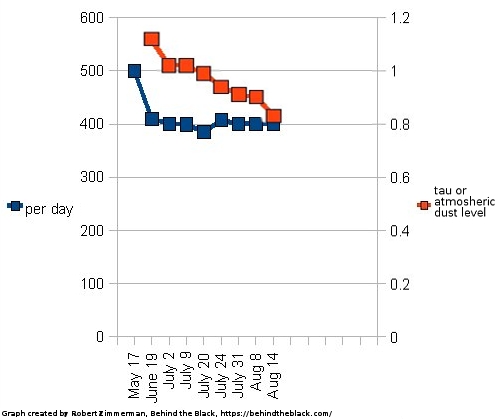
According to a new status update posted today by the science team, the power status for the Mars InSight lander continues to hold steady.
The graph to the right adds the new data, showing that the daily watt hours of power produced each day continues to hold at 400, while the dust in the atmosphere continues to drop towards its normal level of between 0.6 and 0.7 tau during the non-dust seasons.
These new numbers appear to be generally good news. Even though the dust continues to settle out of the atmosphere, it does not appear to be adding dust on the solar panels that would reduce their capability to generate power. Though the science team had predicted that the power levels would cause the mission to end sometime in August, at 400 watts per hour InSight has apparently continued to generate enough electricity to keep its seismometer running for at least another week.

According to a new status update posted today by the science team, the power status for the Mars InSight lander continues to hold steady.
The graph to the right adds the new data, showing that the daily watt hours of power produced each day continues to hold at 400, while the dust in the atmosphere continues to drop towards its normal level of between 0.6 and 0.7 tau during the non-dust seasons.
These new numbers appear to be generally good news. Even though the dust continues to settle out of the atmosphere, it does not appear to be adding dust on the solar panels that would reduce their capability to generate power. Though the science team had predicted that the power levels would cause the mission to end sometime in August, at 400 watts per hour InSight has apparently continued to generate enough electricity to keep its seismometer running for at least another week.
Counting Crows – Angels of the Silences
August 16, 2022 Quick space links
Some quickie stories worth noting, most provided by stringer Jay:
- Michael Tzukran, astrophotographer from the University of Tel Aviv, takes great ground-based picture of Tiangong-3 in orbit
That picture, cropped to post here, is to the right.
- Assembly begins on Europa Clipper
Launch on a SpaceX Falcon Heavy is scheduled for 2024.
- Air Force awards SpaceX $1.9 million contract for Starlink services in Europe and Africa
- Electron’s next launch in September will be its 30th overall
Some quickie stories worth noting, most provided by stringer Jay:
- Michael Tzukran, astrophotographer from the University of Tel Aviv, takes great ground-based picture of Tiangong-3 in orbit
- Assembly begins on Europa Clipper
- Air Force awards SpaceX $1.9 million contract for Starlink services in Europe and Africa
- Electron’s next launch in September will be its 30th overall
That picture, cropped to post here, is to the right.
Launch on a SpaceX Falcon Heavy is scheduled for 2024.
Jury awards Roy Moore $8.2 million, declares he was defamed by Democrats

Roy More, former Republican candidate
for the Senate in Alabama
Pushback: A jury on August 12, 2022 awarded $8.2 million in damages to Roy Moore, who had been the Republican Alabama senate candidate in 2017, declaring that he had been defamed by false accusations of sexual misconduct by a Democratic Party political action committee (PAC).
Jurors found the Senate Majority PAC made false and defamatory statements against Moore in one ad that attempted to highlight the accusations against Moore. The verdict, returned by a jury after a brief trial in Anniston, Alabama, was a victory for Moore, who has lost other defamation lawsuits, including one against comedian Sacha Baron Cohen.
When the accusations were made during the campaign, a close look at the facts made it very clear that they were either false or unreasonably exaggerated. Yet, the leftist press pushed them hard, making no effort to outline their very clear uncertainties. The Democrats then followed up with an aggressive smear campaign.
» Read more

Roy More, former Republican candidate
for the Senate in Alabama
Pushback: A jury on August 12, 2022 awarded $8.2 million in damages to Roy Moore, who had been the Republican Alabama senate candidate in 2017, declaring that he had been defamed by false accusations of sexual misconduct by a Democratic Party political action committee (PAC).
Jurors found the Senate Majority PAC made false and defamatory statements against Moore in one ad that attempted to highlight the accusations against Moore. The verdict, returned by a jury after a brief trial in Anniston, Alabama, was a victory for Moore, who has lost other defamation lawsuits, including one against comedian Sacha Baron Cohen.
When the accusations were made during the campaign, a close look at the facts made it very clear that they were either false or unreasonably exaggerated. Yet, the leftist press pushed them hard, making no effort to outline their very clear uncertainties. The Democrats then followed up with an aggressive smear campaign.
» Read more

